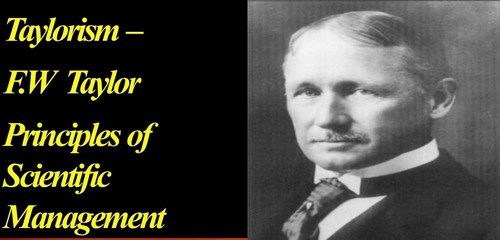Contents:


Firms also have intangible assets such as customer goodwill that may be listed on the balance sheet. Companies also have to set up their computerized accounting systems when they set up bookkeeping for their businesses. Most companies use computer software to keep track of their accounting journal with their bookkeeping entries.

You also have to decide, as a new business owner, if you are going to use single-entry or double-entry bookkeeping. Single-entry bookkeeping is much like keeping your check register. You record transactions as you pay bills and make deposits into your company account. It only works if your company is relatively small with a low volume of transactions.
Accounting Principles
Accounting is a vast topic filled with a truckload of technical jargon that tends to scare off beginners, except those extremely passionate about it. Truth is, most accountants love it that way, so they can charge you more for their services. At Accounting Seed, user experience is one of our guiding focus points and among our major strengths. Our award-winning technology gives you easier accounting without the strain of rigid software and meticulous processes. Dummies has always stood for taking on complex concepts and making them easy to understand.
Assets, liabilities, and equity make up the accounts that compose the company’s balance sheet. In his first meeting with Samy, Abdullah asks him for an overall view of accounting and financial statements and why he needs accounting software. Samy can tell from Abdullah’s business plan that thousands of transactions will probably need to be recorded each year. Financial ReportingFinancial reporting is a systematic process of recording and representing a company’s financial data.
Profit and Loss (P&L) Statement
Commonly referred to as «working capital,» capital refers to funds that can be accessed and don’t include assets or liabilities. These 15 terms will create the foundation on which you’ll build your knowledge of business accounting. While some of these terms might not apply to your business right now, it’s important to develop a holistic understanding of the subject in case you expand or move into another type of business. A cash flow statement analyzes your business’s operating, financing, and investing activities to show how and where you’re receiving and spending money.
- These can be thought of as an increase in one or more accounts and an identical decrease in one or more other accounts.
- Accounts payable is money that you owe other people and is considered a liability on your balance sheet.
- It is based on the accounting equation that states that the sum of the total liabilities and the owner’s capital equals the total assets of the company.
- Businesses must account for overhead carefully, as it has a significant impact on price-point decisions regarding a company’s products and services.
- Read more about learning accounting skills as a business owner to help your business grow.
- The accounting process uses the books kept by the bookkeeper to prepare the end of the year accounting statements and accounts.
In bookkeeping, you have to record each financial transaction in the accounting journal that falls into one of these three categories. At the end of the appropriate time period, the accountant takes over and analyzes, reviews, interprets and reports financial information for the business firm. The accountant also prepares year-end financial statements and the proper accounts for the firm. The year-end reports prepared by the accountant have to adhere to the standards established by the Financial Accounting Standards Board . These rules are called Generally Accepted Accounting Principles . Bookkeeping is the process of recording all financial transactions made by a business.
Accounting Basics for Business Owners
However, publicly traded companies whose securities fall under SEC regulations must use GAAP standards. The SEC has stated that it may adopt IFRS best practices to replace GAAP in the future. Accounts receivable are sometimes called «trade receivables.» In most cases, accounts receivable derive from products or services supplied on credit or without an upfront payment.
What is the first step to do accounting?
The first step in the accounting cycle is identifying transactions. Companies will have many transactions throughout the accounting cycle. Each one needs to be properly recorded on the company's books. Recordkeeping is essential for recording all types of transactions.
The lines on the cash flow statement are categorized into operations, financing, and investing activities, and each source and recipient of cash is listed. The author shows the business owners how to sort through the information and paperwork, record what is important, and use that information to grow a business for success. Concepts are explained with basic, straightforward transaction examples.
Adhere to all income, employment, and excise taxes.
Examples include rent, employee compensation, and property taxes. The term is sometimes used alongside «operating cost» or «operating expense» . OPEXs describe costs that arise from a company’s daily operations. For example, a company that hired an external consultant would recognize the cost of that consultation in an accrual. That cost would be recognized regardless of whether or not the consultant had invoiced the company for their services.

Whether you’ve just launched your business or are a startup veteran, the following section is important. These eight steps will introduce you to the accounting process (if you’re not yet familiar) and set you up to scale your business in a sustainable way. It says to base your accounting on how the business runs now, not how you hope it will run in the future. Even if a company plans to make big changes in the future, that shouldn’t change its value today. Your revenue is the total amount of money you collect in exchange for your goods or services before any expenses are taken out.
Integrity Network members typically work full time in their industry profession and review content for Accounting.com as a side project. All Integrity Network members are paid members of the Red Ventures Education Integrity Network. Accounting.com is committed to delivering content that is objective and actionable. To that end, we have built a network of industry professionals across higher education to review our content and ensure we are providing the most helpful information to our readers.
What are the basics of accounting?
What are the basics of accounting? Basic accounting concepts used in the business world cover revenues, expenses, assets, and liabilities. These elements are tracked and recorded in documents including balance sheets, income statements, and cash flow statements.
Margin per unit equals sales price minus product cost and minus the variable expenses of making the sale. Your business must sell enough volume to earn total margin equal to fixed expenses before breaking into the profit zone. After sales reach the breakeven point, the margin from additional sales goes entirely to profit . The assets that are recorded do not include any inventory that has been sold. Since business is there to make a profit it is important to know this information.
What are the 5 basic accounting principles?
- Revenue Recognition Principle. When you are recording information about your business, you need to consider the revenue recognition principle.
- Cost Principle.
- Matching Principle.
- Full Disclosure Principle.
- Objectivity Principle.
Those are the people who start off on the wrong foot and end up in Marilyn’s office looking for financial advice. Lizzette Matos is a certified public accountant in New York state. She earned a bachelor of science in finance and accounting from New York University. Matos began her career at Ernst & Young, where she audited a diverse set of companies, primarily in consumer products and media and entertainment. She has worked in private industry as an accountant for law firms and for ITOCHU Corporation, an international conglomerate that manages over 20 subsidiaries and affiliates.
What Is Accounting? The Basics Of Accounting – Forbes Advisor – Forbes
What Is Accounting? The Basics Of Accounting – Forbes Advisor.
Posted: Fri, 20 Jan 2023 08:00:00 GMT [source]
Examples include bank loans, unpaid bills and invoices, debts to suppliers or vendors, and credit card or line of credit debts. Rarely, the term «trade payables» is used in place of «accounts payable.» Accounts payable belong to a larger class of accounting entries known as liabilities. Having a separate bank account for your business income and expenses will make your accounting easier. You’ll only have one account to monitor for bookkeeping and tax purposes, and your personal income and expenses won’t get entangled with your business ones. Believe me — only having to look at one set of bank statements is a lifesaver during tax season.

When you think of accounting, the first thing that comes to mind is crunching numbers. Very few people recognize all that goes into accounting until they have involved in it themselves. This book will help you get familiar with all of this and more.
- It makes it easier for stakeholders to understand and compare performance because it separates it into short periods of time.
- Investors are often paid in cash, but may also be issued stock, real property, or liquidation proceeds.
- This allows others within the business to understand those projections’ potential impacts in relatable terms.
- For example, a payment made for a sale previously made on credit would result in an increase in the cash account and a decrease in Accounts Receivable .
- We will talk about accounting basics by telling the story of someone starting a new business.
Microsoft Excel or other sppersonal accountantsheet software are invaluable to accountants, as they help you track numbers in a graph or conduct calculations to create a finance spreadsheet. Even if you know the basics, you can always brush up and learn intermediate or advanced skills for creating spreadsheets, charts, and graphs. Marilyn tells Joe that accounting’s «transaction approach» is useful, reliable, and informative. She has worked with other small business owners who think it is enough to simply «know» their company made $30,000 during the year (based only on the fact that it owns $30,000 more than it did on January 1).
Usually expressed as a percentage, return on investment describes the level of profit or loss generated by an investment. Accountants sometimes make future projections with respect to revenues, expenses, and debts. The concept of «present value» describes calculated adjustments that express those future funds in present-day dollars. If your budget allows, we highly recommend hiring a professional to help with your accounting. You can also deduct payroll taxes, which are employment taxes paid on behalf of your employees .
Top Financial Blogging Books You Should Stop and Read Now – Grit Daily
Top Financial Blogging Books You Should Stop and Read Now.
Posted: Sun, 23 Apr 2023 14:00:00 GMT [source]
Taking steps to further your business knowledge can be a worthy investment in both your career and the financial health of your company. Financial InformationFinancial Information refers to the summarized data of monetary transactions that is helpful to investors in understanding company’s profitability, their assets, and growth prospects. Financial Data about individuals like past Months Bank Statement, Tax return receipts helps banks to understand customer’s credit quality, repayment capacity etc. Accountants make two or more entries for each transaction recorded by the business. These can be thought of as an increase in one or more accounts and an identical decrease in one or more other accounts. For example, a payment made for a sale previously made on credit would result in an increase in the cash account and a decrease in Accounts Receivable .
How do I start learning accounting?
Begin your financial accounting education by learning how to read and analyze three key financial statements: the balance sheet, income statement, and cash flow statement. These documents contain valuable information about your company's spending, earnings, profit, and overall financial health.
